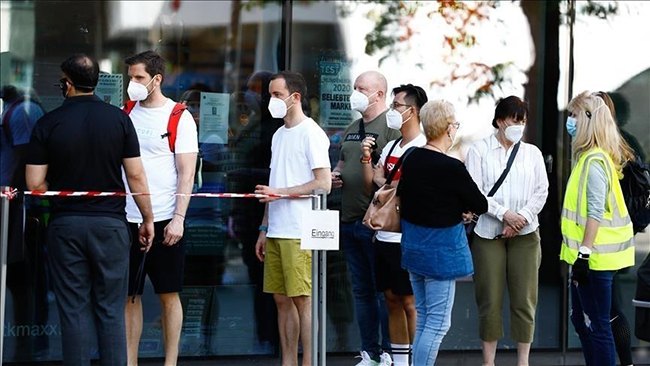Some states in Germany are introducing tougher regulations on Monday in order to prevent the rapidly rising number of cases of Covid-19 from spiking further.
Germany is grappling with a fourth wave of cases, with record infection rates and rising levels of hospitalization.
New rules kick in in the eastern state of Saxony, and the northern state of Schleswig-Holstein, where case numbers are particularly high.
In Saxony, all cultural and leisure facilities, bars, clubs and discos are shut aside from libraries. However, shops providing basic daily necessities do not face any restrictions.
People in Saxony who have not yet been vaccinated face further restrictions and will not be allowed out without a valid reason between the hours of 10 pm and 6 am once the weekly incidence rate of new infections in their district is higher than 1,000 per 100,000 people.
Meanwhile in the south-western state of Baden-Wuerttemberg, those who have not been vaccinated may only leave their homes between 9 pm and 5 am in three districts.
And in northern Schleswig-Holstein, only those who are vaccinated or who have recovered from an infection may take part in indoor recreational events.
The patchwork of new rules reflects the fact that up until a certain point, the states determine health regulations based on case numbers in their region.
On Monday, acting Health Minister Jens Spahn is also expected to address the press following a controversy about caps on the availability of a certain vaccine.
Spahn's press conference is to cover the Moderna and BioNTech vaccines against Covid-19, after his ministry was forced to defend limited supplies of the domestically produced BioNTech shot.
State health ministers are also due to discuss the issue on Monday, Bavarian Health Minister Klaus Holetschek said.
The federal Health Ministry has told doctors' surgeries that they will have access to an unlimited number of Moderna shots to provide booster shots.
However caps on the number of BioNTech vaccine doses surgeries and vaccination centres can order has prompted criticism from across the political spectrum. BioNTech is a German firm, producing its vaccine in conjunction with Pfizer. The vaccine is very popular in Germany.
Spahn defended the ministry's plan during the weekend, saying it was intended to ensure that doses which are stored do not expire. He also said demand for the BioNTech shot had spiked, meaning stocks were emptying faster than expected.
The ministry emphasized the effectiveness of both shots, but state health representatives and medics continue to criticize the plan, concerned about uncertainty among patients and extra work that could slow the pace of the booster campaign.
Source: DPA






